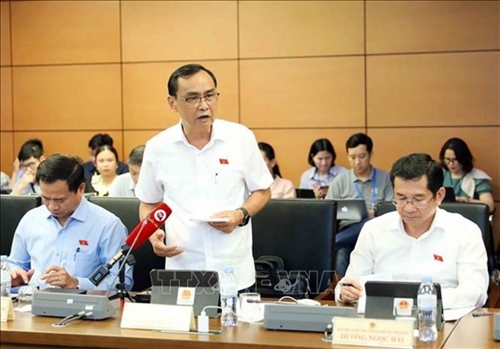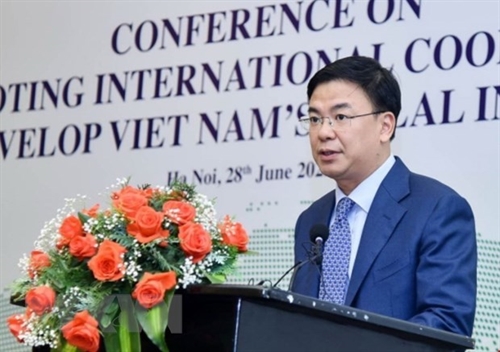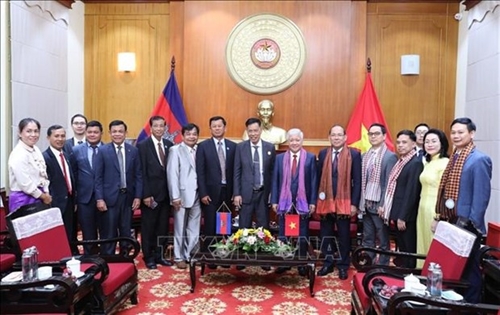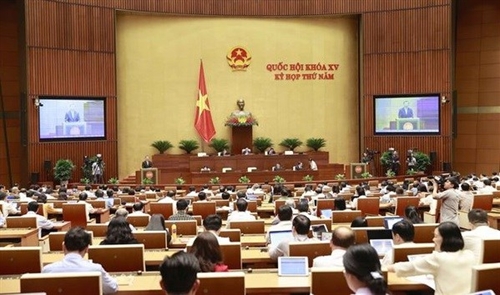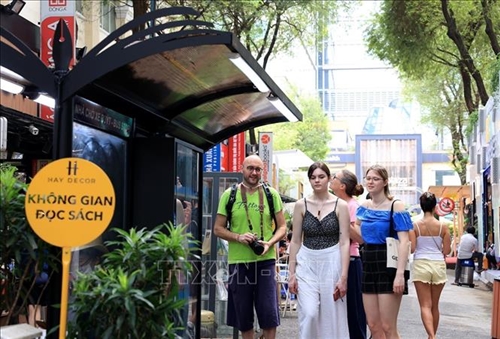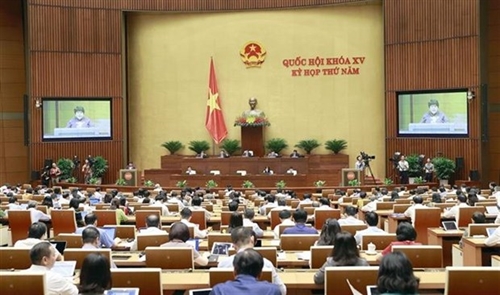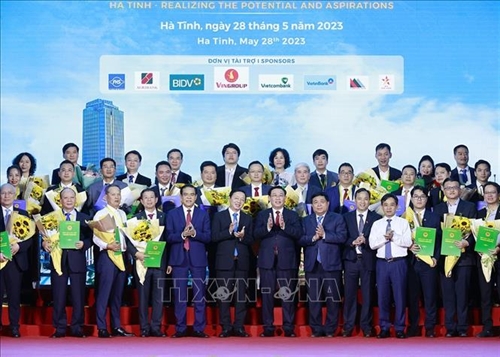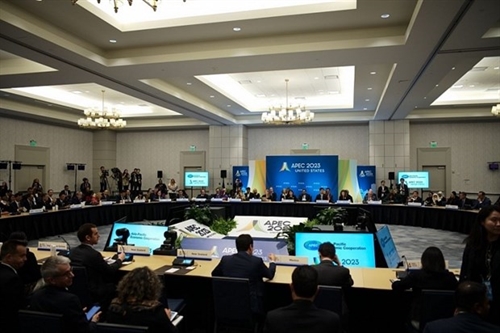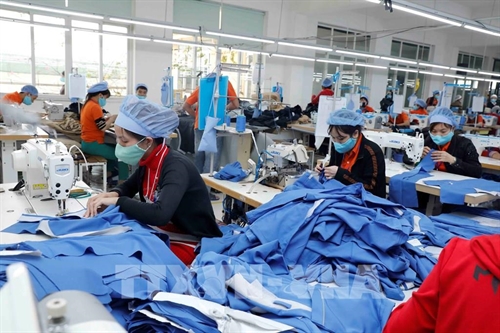The International Organization for Migration (IOM), in collaboration with the Department of Drug Control and Crime Prevention (DDCCP) of Vietnam Border Guard jointly held a workshop on May 30 to launch the “Training Curriculum on Counter-Trafficking and Victim Protection” and wrap up the project “Frontline training for Border Guards in Border Areas of Vietnam”, funded by the Bureau of International Narcotics and Law Enforcement Affairs (INL) of the United States Department of State.
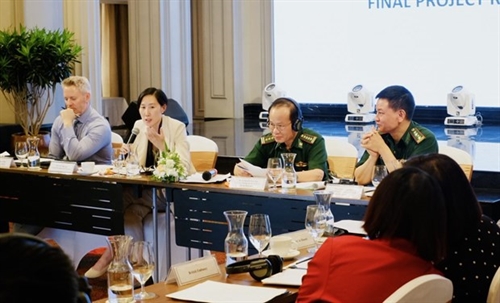 |
| IOM’s Chief of Mission Park Mihyung (second from left) speaks at the workshop__Photo: VNA |
Overseeing 4,639km of land borders and 3,444km of coastlines, the Vietnam Border Guard is at the forefront of the fight against Trafficking in persons (TIP) and the provision of protection and support for trafficking victims, and the first - and sometimes only - law enforcement officer with whom a trafficking victim may ever come into contact.
After three years of implementation, the project has achieved a number of significant outcomes that profoundly enhanced the technical capacity of Vietnam Border Guards, especially frontline officers in hotspot border areas, to better detect, investigate and handle TIP cases, as well as identify, protect and assist trafficking victims.
Within the framework of this project, the training curriculum on counter-trafficking and victim protection for frontline officers was developed by the Vietnam Border Guard High Command and approved by the Ministry of Defense for use in trainings. The Training Curriculum was disseminated to Border Guard stations and Border Guard Academies in 12 target provinces and was used to conduct 12 training workshops for 436 frontline Border Guard officers in 12 target provinces in the North and South regions of Vietnam. The project also creates a forum for the officers to exchange effective methods, professional skills and practical experiences that have been successfully applied in retracing, investigating and prosecuting TIP cases.
“I am a strong supporter of this project from the very beginning and IOM is very proud to cooperate with the Department of Drug Control and Crime Prevention of Vietnam Border Guard to contribute to enhancing capacities of Vietnam Border Guard officers, who are at the frontline to receive, protect and identify returning trafficking victims. Facilitating safe and orderly cross-border human mobility for migrants, while maintaining border security, supporting border guards’ engagement is one of the critical components in IOM’ mandate,” Ms Park Mihyung, IOM’s Chief of Mission stated.
“Trafficking in persons is a complex global problem that requires a coordinated response. This project is a significant part of IOM’s work to support the Government of Vietnam to just strengthen its border management, but also contribute to the comprehensive effort under the nation’s Human Trafficking Prevention and Control Program 2021-25 and the National Implementation Plan for the Global Compact for Safe, Orderly and Regular Migration (GCM), of which Vietnam is an active member," Ms Park Mihyung added.
IOM also coordinated with DDCCP to conduct end-of-training assessments at 6 hotspot provinces including An Giang, Kien Giang, Tay Ninh, Ba Ria - Vung Tau, Cao Bang and Lang Son. The assessment results not only provided valuable information on the ongoing trends and modus operandi of TIP criminals and irregular migration activities in border areas but also revealed the challenges that border guards and victim support agencies must face in implementing processes and procedures for the investigation of TIP cases as well as trafficking victim protection and support. The frontline officers who participated in the assessment also contributed useful intervention ideas and recommendations to address ongoing obstacles for consideration by IOM and the DDCCP in future cooperation.- (VLLF)
